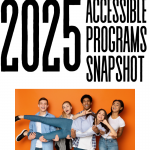Conflict with your Teen? Learn All About the Power of Validation

One of the skills that we learn in Dialectical Behavioural Therapy during the “Walking the Middle Path” module is Validation. Validation may be one of the most important and powerful relationship skills for parents and teen communication. As a parent it can be difficult to validate an emotion that we may not understand or agree with. What we learn in Walking the Middle Path is that we do not need to agree to validate.
What Is Validation?
“Validation communicates to another person that his or her feelings, thoughts, and actions make sense and are understandable to you in a particular situation.”
—DBT Skills Manual for Adolescents
The Benefits of Validation
- lowers the emotional intensity of the person with whom we are interacting
- increases the chance that he or she will remain in the conversation
- more accurate and effective expression of emotions
- results in a positive cycle; more receptive communication occurs
- strengthens the relationship
- deescalates conflict and intense emotions
- demonstrates that we are listening, understanding, being non judgemental, that we care about the relationship and that we can disagree without having a big conflict
Validation Does Not Equal Agreement
The skill of validation helps manage multiple perspectives. We can show acceptance or understanding of how another person sees a situation. Being validating does not necessarily mean you like or agree with the other persons actions, words, or feelings. You do not need to validate the behaviour to validate the emotion.
How can we validate
- Actively listen; make eye contact and stay focused
- Be mindful of your verbal and nonverbal reactions in order to avoid invalidation
- Observe what the other person is feeling in the moment. Look for a word that describes the feeling.
- Reflect the feeling back without judgment.
- Show tolerance! Look for how the feelings, thoughts, and actions make sense, given the other’s (or your own) history or current situation, even if you don’t approve of the behaviors or emotions
If you are interested in learning more about the skills taught in DBT please contact us.


